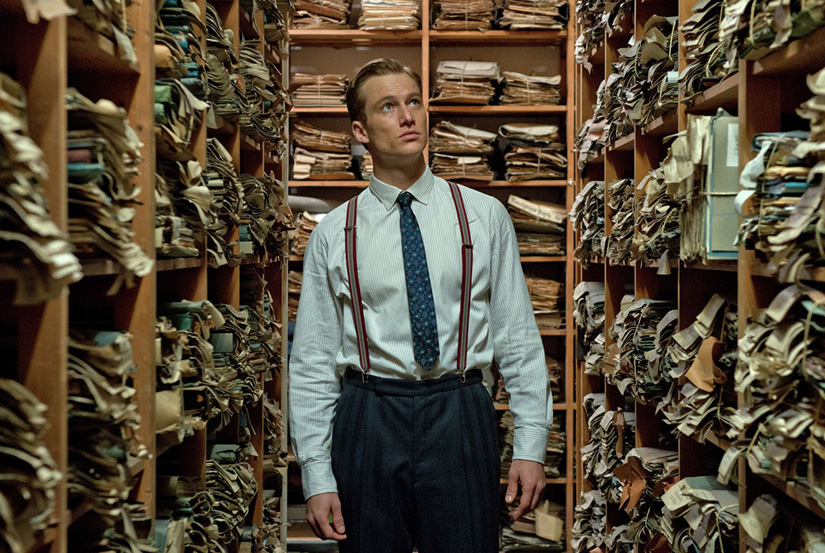
- Film
Foreign Film Submissions, 2015: Labyrinth of Lies (Germany)
Part of the Hollywood Foreign Press Association’s mission is to foster greater understanding through world cinema. This year 72 Foreign Language films were submitted for Golden Globes consideration. Here is an overview of one of them.
The feature-film debut from filmmaker Giulio Ricciarelli is a fictionalized account of a true and compelling story that happened in postwar Germany. Labyrinth of Lies opens 13 years after Hitler’s Third Reich was defeated and juxtaposes national politics with personal fates. During the Frankfurt Auschwitz Trials – from 1963 to 1965, the German government prosecuted 22 people who ran the infamous death camp.
“I thought the story was incredible and I couldn’t believe that many Germans in the late 1950s had never heard of Auschwitz,” the film’s director said, pinpointing the denial that most Germans lived with after the Second World War. “There was an attempt to silence the dark past.” Ricciarelli says. The original German title captures this better than the – lose – translation: Im Labyrinth des Schweigens means literally In the Labyrinth of Silence.
The main character is a young German lawyer named Johann Radmann, who is a composite of three of the real-life prosecutors in the trials and who has just been hired as junior prosecutor by the attorney general of the German state of Hesse. Radmann is bored by having to deal with minor offenses when an investigative reporter informs him that a former SS concentration camp guard now works as a gym teacher in a local high school, which is against the law, He explains to the young lawyer that the entire German civil service is filled with positions for former Nazis, and it would impossible to prosecute all of them.
But Radmann cannot be deterred. When he meets a survivor whose twin daughters died during one of Dr. Josef Mengele’s experiments, he gets his hand on a list of SS guards who were stationed in Auschwitz. Radmann digs deeper and is confronted with the old “Mitläufer” excuse that the suspects were just following orders and could not be held accountable after so much time had passed. It is a discovery about his own family that really makes the topic personal for him – his own father was a member of the Nazi party.
The 50-year old Giulio Ricciarelli is the son of an Italian father and a German mother. He grew up in Germany and learned about the Holocaust when he was 8 years old: “I was destroyed,” the director said. “I still cannot understand how ‘normal people,’ who prided themselves in living in ‘the land of poets and thinkers,’ could do such things.“ History stayed with him and propelled him to make this feature, his first one.
Elisabeth Sereda